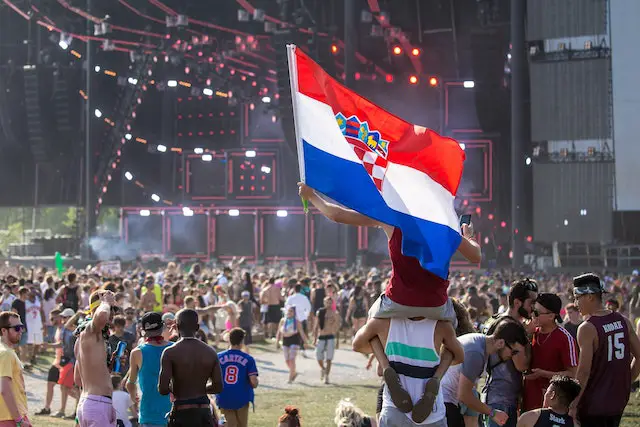Moving to a new city or country can be a daunting experience, especially for professional athletes who are not only adjusting to a new environment but also expected to perform at their peak on the field.
However, clubs play a crucial role in helping players seamlessly transition into their new surroundings. Whether it’s providing housing, language lessons, or cultural guidance, clubs recognize the importance of creating a support system that allows players to feel at home and focus on their game.
In this article, we will explore the various ways clubs assist players in adapting to new cities or countries, ensuring their successful integration into the team and community.
Language and Cultural Training
Language Courses
When a player moves to a new city or country, one of the first challenges they may face is a language barrier. To help players overcome this obstacle, clubs often provide language courses or language training programs. These courses can vary in intensity and duration, depending on the player’s needs and the level of fluency required. By offering language courses, clubs aim to equip players with the necessary language skills to communicate effectively on and off the field.
Cultural Orientation Programs
In addition to language training, clubs also offer cultural orientation programs to help players familiarize themselves with the local customs, traditions, and way of life. These programs provide valuable insights into the cultural nuances of the new city or country, helping players navigate social interactions and avoid cultural faux pas.
Understanding and appreciating the local culture allows players to integrate better into their new environment and build positive relationships with teammates, coaches, and the local community.
Translation Services
To further support players in their transition, clubs often provide translation services. These services can range from simple translation assistance for day-to-day activities like grocery shopping or appointment scheduling, to more complex tasks such as translating legal documents or contracts. By offering translation services, clubs ensure that language barriers do not hinder a player’s ability to adapt and thrive in their new city or country.

Relocation Assistance
Finding Accommodation
Relocating to a new city or country often involves finding suitable accommodation. Clubs understand the importance of a comfortable living situation for players and therefore provide assistance in finding appropriate housing options.
Whether it’s recommending real estate agents, offering access to a network of trusted landlords, or providing temporary accommodation until a permanent solution is found, clubs strive to alleviate the stress of finding a new home for their players.
Navigating Transportation
Getting around in a new city or country can be challenging, especially if public transportation systems or driving regulations differ significantly from what players are accustomed to. To ensure players can navigate their new surroundings with ease, clubs offer assistance in understanding transportation options and provide guidance on using public transportation systems, locating essential services, and even assist in obtaining a driver’s license if necessary.
Settling Legal Matters
Moving to a new city or country often involves dealing with various legal matters, including visa applications, work permits, and contracts. To support players through this process, clubs often have dedicated staff or external professionals who specialize in legal matters related to relocation. These experts guide players through the necessary paperwork, help them understand their rights and obligations, and ensure that all legal requirements are met, allowing players to focus on their performance on the field.
Community Integration
Introduction to Local Community
To help players feel at home in their new surroundings, clubs facilitate introductions to the local community. This may involve organizing introductory events or connecting players with local community organizations or clubs. By fostering a sense of belonging and creating opportunities for players to engage with the community, clubs help players establish roots in their new city or country beyond the confines of their sport.
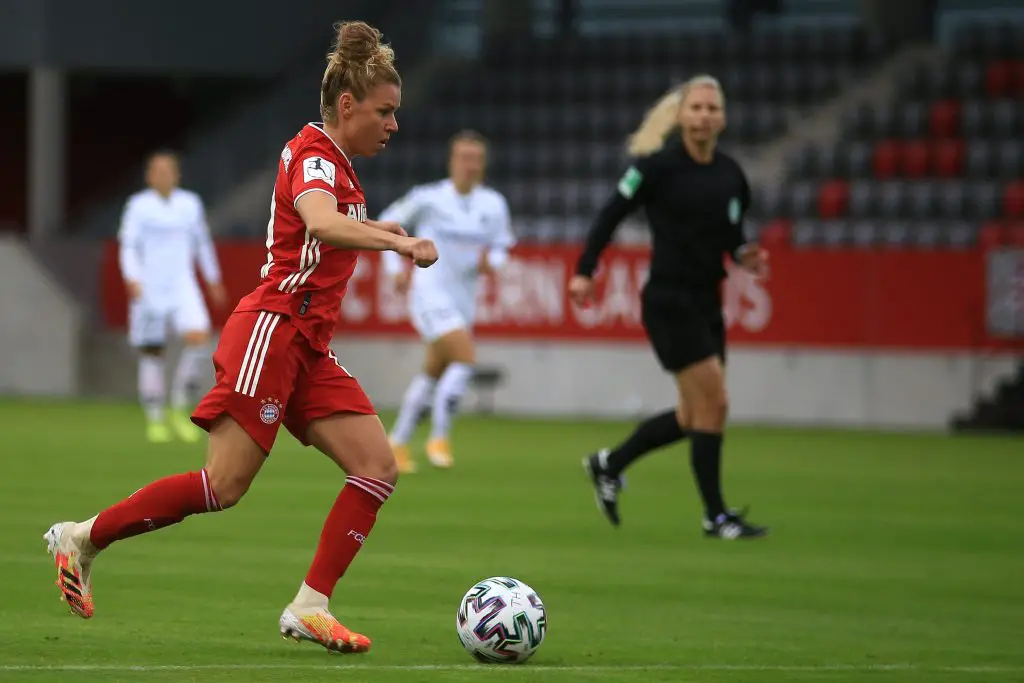
Networking Opportunities
Building a strong professional network is crucial for players, both on and off the field. Clubs recognize this and provide networking opportunities that connect players with local professionals, individuals in similar industries, or influential members of the community.
These networking events or programs can range from casual meet-and-greets to more structured networking sessions, fostering connections that can benefit players in their personal and professional lives.
Social Events and Activities
To promote social interaction and help players build meaningful relationships, clubs organize various social events and activities. These can include team outings, cultural excursions, charity events, or community service projects.
By providing opportunities for players to socialize and engage with their teammates, coaches, and the local community in a relaxed and enjoyable setting, clubs contribute to creating a sense of camaraderie and support system for players.
Mentorship and Buddy Programs
Assigned Mentors
Mentorship programs play a crucial role in assisting players with their transition to a new city or country. Clubs often pair new players with experienced teammates or individuals within the organization who can serve as mentors.
These mentors provide guidance, support, and advice based on their own experiences, helping players navigate the challenges of adapting to a new environment. Whether it’s offering insights on local culture, recommending places to visit, or providing emotional support, assigned mentors serve as valuable resources for players.
Buddy System
In addition to assigned mentors, clubs may implement a buddy system where new players are paired with current players who can act as buddies.
These buddies help new players settle into the team dynamics, show them around the city, and provide a friendly face during training sessions and matches. The buddy system fosters friendship and camaraderie among players while ensuring that newcomers have someone to turn to for immediate support or assistance.
Peer Support Groups
To create an inclusive and supportive environment, clubs may also implement peer support groups for players. These groups bring together players who are going through similar experiences, allowing them to share challenges, exchange advice, and offer emotional support.
Peer support groups provide a safe and understanding space for players to discuss their thoughts, concerns, and triumphs, fostering a sense of belonging and solidarity within the team.
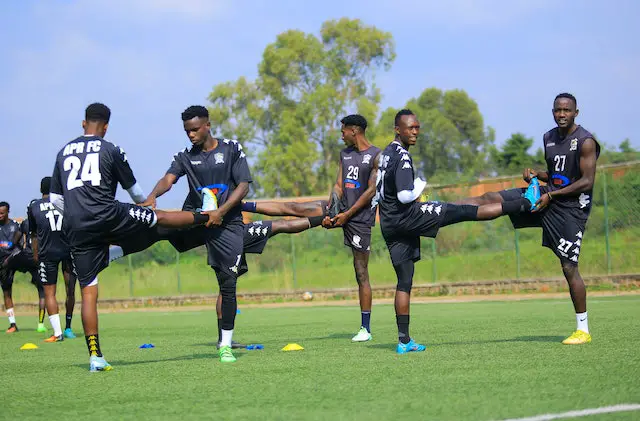
Family Support
Education and Schooling
When players relocate with their families, ensuring the education and schooling of their children becomes a priority. Clubs recognize the importance of providing educational support and often assist in identifying suitable schools or educational programs for players’ children.
This may include offering guidance on curriculum choices, connecting families with educational specialists, or providing information on local schooling options to help parents make informed decisions for their children’s education.
Healthcare and Medical Services
The well-being of players’ families is of utmost concern to clubs. Therefore, they provide assistance in accessing healthcare and medical services. This can include helping families navigate the local healthcare system, recommending doctors or medical facilities, or assisting with health insurance coverage.
By ensuring that players and their families have access to quality healthcare, clubs prioritize the overall health and welfare of their players and their loved ones.
Spousal and Dependent Support
Moving to a new city or country can be particularly challenging for spouses or dependents who may not have the same support networks as the players.
Recognizing this, clubs may offer specialized support programs or resources for spouses and dependents, such as job placement assistance, access to social networking groups, or cultural orientation programs designed specifically for family members. By extending support to the entire family, clubs strive to create a supportive environment where everyone can thrive.
Counseling Services
Psychological Support
Transitioning to a new city or country can be emotionally challenging for players. To address any psychological concerns or emotional difficulties, clubs often provide access to counseling services.
These services may include one-on-one counseling sessions, group therapy, or workshops aimed at promoting mental well-being and providing tools for managing stress, anxiety, or homesickness. By prioritizing players’ mental health, clubs ensure that they have the necessary support to adapt successfully to their new environment.
Emotional Well-being
Clubs understand that emotional well-being is essential for players to perform at their best. Therefore, they offer resources and programs to support emotional well-being. This can include yoga or meditation classes, mindfulness training, or access to sports psychologists who specialize in helping athletes manage stress, build resilience, and maintain peak performance. By fostering emotional well-being, clubs empower players to overcome challenges and excel on and off the field.
Stress Management
Relocation can bring about significant stress for players and their families. Clubs recognize the impact of stress on performance and prioritize stress management. They may provide resources, such as stress management workshops, relaxation techniques, or access to wellness centers. By equipping players with effective stress management techniques, clubs enable them to maintain a healthy work-life balance, enhance performance, and thrive in their new city or country.
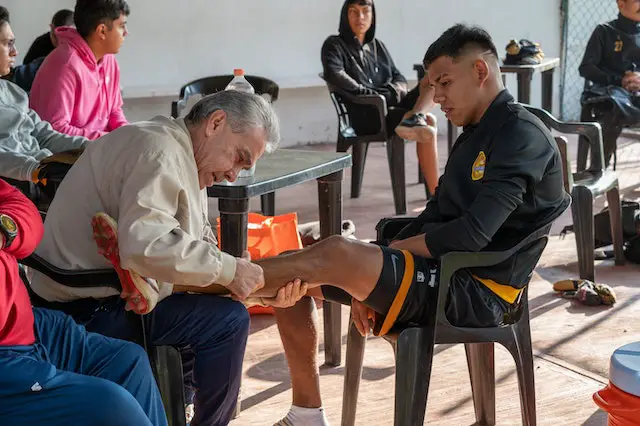
Access to Local Services
Banking and Financial Services
To ensure that players have access to essential banking and financial services, clubs often facilitate the process of setting up bank accounts or connecting players with reliable financial institutions.
This allows players to manage their finances efficiently, transfer funds internationally if necessary, and access secure banking services tailored to their needs as international athletes. By assisting with banking and financial matters, clubs reduce the administrative burden on players and contribute to their overall well-being.
Health and Fitness Facilities
Maintaining physical fitness is crucial for players’ performance. Clubs typically provide access to well-equipped health and fitness facilities, including gyms, sports medicine clinics, and rehabilitation centers.
These facilities offer state-of-the-art equipment and professional trainers who can assist players with their fitness goals, injury prevention, and recovery. Access to such facilities not only supports players’ physical well-being but also fosters a sense of belonging to a community of athletes striving for excellence.
Legal and Immigration Support
Navigating the legal and immigration processes in a new city or country can be complex and time-consuming. To ease this burden for players, clubs often offer legal and immigration support services.
This may include connecting players with immigration lawyers, assisting with visa applications or renewals, and providing guidance on work permits and residency requirements. By offering reliable support in legal and immigration matters, clubs ensure that players can focus on their sporting endeavors without unnecessary distractions.
Integration into Sporting Community
Team Bonding Activities
To foster a strong sense of teamwork and camaraderie, clubs organize team bonding activities. These activities can range from training camps or retreats to team-building exercises or friendly competitions.
By creating opportunities for players to bond and establish connections beyond the field, clubs lay the foundation for strong team dynamics and lasting friendships, which are essential for effective collaboration and success in sports.
Support from Club Staff and Players
Clubs understand the importance of providing ample support to players both on and off the field. This support comes not only from the coaching staff but also from fellow players. By cultivating a supportive environment, clubs encourage players to lean on each other and seek guidance from experienced teammates or club staff members.
Whether it’s advice on training techniques, adjusting to a new playing style, or simply providing a listening ear, the support system within the club offers valuable assistance during the adaptation process.
Inclusion in Team Events and Functions
To ensure players feel included and valued within the team, clubs make a conscious effort to involve them in team events and functions. This can range from team dinners or celebrations to attending community events together. By inviting players to engage in team activities beyond training and matches, clubs reinforce a sense of belonging, foster team spirit, and help players form stronger bonds with their teammates.
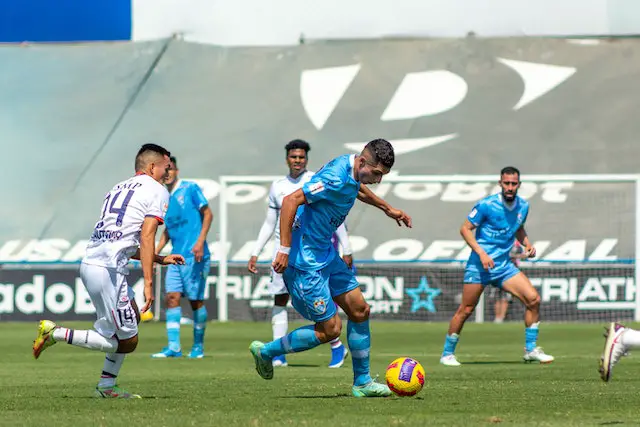
Adapting to Sporting Environment
Understanding Tactics and Strategies
Each sport has its own set of tactics and strategies that players must understand and adapt to. Clubs recognize the importance of helping players acclimate to these specific aspects of their sport. They provide resources such as video analysis sessions, tactical workshops, or access to sports psychologists who can help players interpret and implement the team’s tactics effectively. By offering support and guidance in understanding and adapting to the sporting environment, clubs enable players to contribute to the team’s success more quickly.
Adapting to Different Playing Styles
Moving to a new club or country often means encountering different playing styles. To ease the transition, clubs help players adapt to these new styles by providing training sessions that focus on the specific nuances of the local playing style. Additionally, clubs may organize friendly matches or scrimmages against local teams to give players the opportunity to experience the unique challenges and dynamics of their new sporting environment. By facilitating the adaptation process and exposing players to various playing styles, clubs enhance players’ versatility and effectiveness on the field.
Adjusting to Training and Competition Regimes
The training and competition regimes in a new club or country may differ significantly from what players are accustomed to. Clubs understand the importance of adjusting to these new regimes and provide support in the form of specialized training programs, fitness assessments, or tailored nutrition plans. By assisting players in adapting to the training and competition expectations, clubs ensure that they can perform at their best and meet the demands of their new sporting environment.
Cultural Sensitivity Training
Respecting Local Customs and Traditions
Clubs acknowledge the significance of cultural sensitivity and the impact it has on players’ integration into a new city or country. To promote respectful interactions, clubs provide cultural sensitivity training to familiarize players with the local customs, traditions, and social norms. This training equips players with the knowledge and understanding necessary to navigate cultural differences with respect, empathy, and openness.
Avoiding Cultural Clashes
Cultural clashes can arise when players from diverse backgrounds come together. Clubs recognize the potential for misunderstandings and conflicts and aim to prevent such clashes by creating an inclusive and culturally sensitive environment.
By promoting open communication, fostering understanding, and encouraging dialogue, clubs aim to minimize cultural clashes and promote harmony within the team.
Understanding Etiquette and Norms
Every culture has its own set of etiquette and norms that may differ significantly from what players are accustomed to. Clubs provide guidance and education on the etiquette and social norms of the new city or country, ensuring that players can navigate social interactions with confidence and avoid unintentional offense.
By familiarizing players with local customs and norms, clubs help them integrate smoothly into their new cultural environment.
Conclusion
In conclusion, clubs go to great lengths to support players in adapting to new cities or countries. Through language and cultural training, relocation assistance, community integration programs, mentorship and buddy systems, family support.
Also counseling services, access to local services, integration into the sporting community, adaptation to the sporting environment, and cultural sensitivity training, clubs aim to provide a comprehensive support system that facilitates players’ successful transition and integration into their new environments.
By addressing a wide range of needs and challenges, clubs help players not only excel on the field but also thrive in their personal lives, ensuring they feel at home and valued within their new communities.

